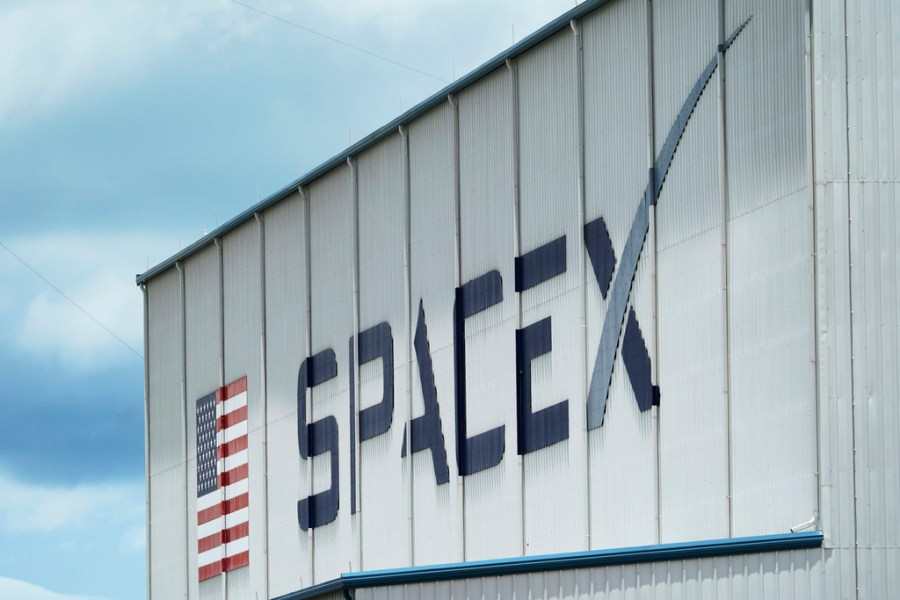
In recent weeks, much attention has been given to Elon Musk advising President Trump to block a spending bill that would have restricted American investments in China. Less, however, has been said about the Trump administration’s defense industry confirmations, which have significant connections to Musk’s company, SpaceX.
The ties raise critical concerns about U.S. national security, as having so many defense officials linked to SpaceX could undermine the nation’s defense interests by driving more contracts to the company — despite its potential vulnerabilities to Chinese influence. This dynamic could inadvertently aid China’s quest to outmaneuver the U.S. in space.
If the Senate confirms Trump nominees Jared Isaacman and Emil Michael, Musk would benefit from substantial representation within the U.S. defense establishment.
Isaacman, Trump’s pick to head NASA, has extensive financial and operational ties to SpaceX. His company, Shift4 Payments, invested $27.5 million in SpaceX shares, and he has personally financed multiple SpaceX missions, including the Polaris Program. As NASA administrator, Isaacman would oversee billions of dollars in contracts with SpaceX, raising concerns about favoritism and conflicts of interest in awarding future contracts.
Michael, Trump’s nominee for undersecretary of Defense for Research and Engineering, is also a SpaceX investor. With a history of managing defense-related projects during his tenure as a White House Fellow and ties to Musk through Silicon Valley networks, Michael’s position could influence research priorities and funding allocations in ways that disproportionately benefit SpaceX.
Musk’s business ties with China further compound these concerns. Tesla’s Shanghai Gigafactory was financed with $1.4 billion in loans from Chinese state-controlled banks, potentially exposing Musk to pressure from the Chinese government. Under China’s 2017 National Intelligence Law, all organizations and citizens are required to “support, assist, and cooperate with national intelligence efforts,” giving Chinese authorities broad powers to demand information or compliance from companies operating within its borders.
Musk has also publicly praised China’s leadership on multiple occasions, including commending its leaders for their governance and celebrating the 100th anniversary of the Chinese Communist Party. Such actions suggest a willingness to align with Beijing’s interests rather than resist its demands — an alarming prospect, given Musk’s growing influence over U.S. defense operations.
Adding to these concerns are ongoing investigations by three U.S. defense agencies into Musk and SpaceX for reportedly failing to disclose meetings with foreign leaders. One such meeting allegedly involved Russian President Vladimir Putin asking Musk to execute a foreign policy favor for Chinese leader Xi Jinping. Musk’s decision to limit Starlink services over Ukraine for the purpose of attacks inside Russia further raises questions about his reliability as a defense contractor and his susceptibility to foreign influence.
Trump advisor Vivek Ramaswamy may have been prescient when he argued in 2023 that Musk is “increasingly beholden to China.” Although Musk’s business interests are undeniably global in scope, space policy cannot afford such entanglements — it is too vital to U.S. national security.
General John W. Raymond, chief of Space Operations for the U.S. Space Force, highlighted the stakes when he stated that “space is now a warfighting domain” akin to air, land and sea. He warned of significant threats posed by adversaries such as China, which could jeopardize America’s access to space capabilities.
China is currently the top U.S. competitor in space exploration and militarization. Xi has declared that building a strong space power is China’s “eternal dream.” According to a 2024 Department of Defense report, China conducted more than 60 successful space launches in a single year — the most of any nation — and has made significant advancements in space-based intelligence, surveillance and reconnaissance capabilities critical for modern military operations.
China also views Starlink as a military threat and is actively developing anti-satellite technologies designed to neutralize it during potential conflicts over Taiwan or other contested regions. This highlights the strategic vulnerabilities of relying heavily on SpaceX for military communications — a risk amplified by Musk’s business entanglements with China.
SpaceX currently holds more than $10 billion in federal contracts across NASA and the Department of Defense, including vital satellite launches and communications services such as Starlink. This near-monopoly on space-related government work raises concerns about over-reliance on a single contractor. The appointment of individuals closely tied to SpaceX could further centralize decision-making power in favor of one company, discouraging competition and innovation within the defense sector.
Such reliance creates a single point of failure that adversaries could exploit. Diversifying contractors would enhance resilience against these risks while fostering greater competition and innovation in space technologies.
Finally, there are ethical concerns surrounding Musk’s overlapping roles as both a government advisor and CEO of a major defense contractor. Critics argue this dual role creates inherent conflicts of interest that could prioritize Musk’s business interests over national security needs — especially given how deeply those interests are intertwined with China’s economy and political system.
The growing entanglement between SpaceX leadership and U.S. defense agencies represents an undeniable national security concern. As China continues its rapid ascent as America’s top space rival, ensuring independence from foreign influence — and diversifying reliance on contractors like SpaceX — is essential for safeguarding U.S. strategic interests in this critical domain.
Jianli Yang, Ph.D., is founder and president of Citizen Power Initiatives and author of “For Us, The Living: A Journey to Shine the Light on Truth” and “It’s Time for a Values-Based ‘Economic NATO.’”









